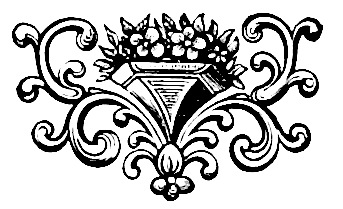|
|
| Jul/Aug 2017 • Nonfiction |
|
|
| Jul/Aug 2017 • Nonfiction |

There is a zoo where I'm from, and I know it well. I could draw a map if you asked. I could show you the quickest way from the capybaras to the macaws, or where the iguana used to be before someone climbed over the fence and stole it. When something new is built, I know what fence to peek over to see the exhibit it replaced, and what bushes to brush aside to see the one before that, on and on through the layers of my memory.
When I was 17, my school canceled its annual trip to the zoo because a boy named David was bitten by a rat there. He thought the rat was dead, I heard, because it was curled limply in a hollow tree. It was not dead, and David had to get a rabies shot. I remember back to third grade, when I sat next to David at lunch to eavesdrop on the stories he told his friends. He told them about the elevator in his basement that went straight to hell, about his dad who wrestled animals for a living and lost a pinky finger to an alligator. I suppose David was following in his footsteps.
When I was 12, I attended summer camp at the zoo with my brother. We stayed for a night hike. The camp counselors hid in the brush and pretended to kidnap one child at a time—I suppose until the crying got to them. The familiar became unfamiliar, and my zoo turned against me in the dark. I held my brother's hand even after the trick was revealed, even while I screamed at sheepish faces for making me think I might lose him, because he asked me not to let go.
When I was nine, my best friend and I discovered a quiet clearing between the bamboo forest and the duck pond. For a long time, we watched the sun wiggle its way through holes in the dense canopy. A hurricane sent her far away later that year, and we only spoke once after that: she called to warn me that spiders like to make nests in braids. We agreed this was an important thing to know.
When I was six, my father and I went to Family Night. We camped out under the oak trees along the main walk. This was the oldest part of the zoo; the original cobblestones had long since retreated beneath the grass, held tightly in the subterranean grip of the oaks. We searched for a long time to find a spot where no roots would jab us through the floor of our tent. But the trees were so well established that it was no use, so we let the wise old things hold us while we slept.
When I was too young to know my age, I stood at the edge of the duck pond and saw a giant turtle floating serenely below its surface. It was bigger than the biggest snapping turtle, longer even than my zoo's famous alligator that had outgrown its pen. The turtle's golden limbs stood straight out like the points of a star. As it passed beneath the reflection of the cypress trees, it pulled at the mirror-moss, dragging the whole world along with it. My mother told me later it was a dream. I did not believe her.
My zoo never leaves me. Even now, when I enter elevators, I briefly wonder what combination of buttons might sink me beneath the earth, past gnarled roots and old cobblestones toward the heat below. When I am angry with my brother, I remember how closely we held one another as the woods loomed black above. I don't trust spiders around hair, even if they are curled up in a hollow and by all appearances dead. I wonder how an oak tree bears outliving all its friends when I could not endure missing one.
This summer, I went back to my zoo. I stood at the edge of the duck pond and looked for the giant turtle that carried the bamboo forest, the cypress knees, the missing iguana, and everything else on its back. The moss waved, and fish flitted between patches of algae. There was no sign of the turtle. Still, I'll keep looking.